Monster’s University is the latest in a long line of Pixar films to fail the Bechdel Test (out of their 14-film catalogue, only A Bug’s Life, The Incredibles, Toy Story 3 and Brave pass). It’s obvious why – as a college flick, it’s about fraternities. When representing the college life, it would be unforgivable to ignore the fact that fraternities are all-male, right?
After all, it’s not as though there were any other facets of the college experience that they altered in this film about monsters learning how to travel through portals and scare children. It would just be stretching the audience’s suspension of disbelief too far if Oozma Kappa contained both men and women; we can believe a walking eyeball can be friends with a blue-and-purple sasquatch, but mixing some women into the group of unlikely heroes – that would just be ridiculous.
The film passes only one of the Bechdel Tests – it contains more than one woman. Dean Hardscrabble (Hellen Mirren) is one of the film’s best characters, and “Scott’s mother”, Sheri Squibbles (Julia Sweeney) is responsible for two of the film’s best gags, but at no point do they exist in a scene together, let alone have a conversation.
No, unsurprisingly for Pixar, they wrote a bunch of male characters, gave one of them a mother, and then a few weeks before animation started, switched the dean’s gender to female, “to play things against type”.
As a result, the dean’s gender is almost completely irrelevant – which, in this context (she’s a legend of the monster world) actually gives a positive female role-model without making a song and dance out of the fact that yes, she’s female.
Female and a role model.
That in itself can be considered feminist; the film as a whole, however – focusing almost entirely on males interacting with other males – could have done so much better.
Gender aside (all you needed to do was put some women on the team!), Monster’s University is a standard Pixar film. It’s masterfully constructed, beautifully animated, with fun dialogue and strong characters. What’s more, it teaches lessons rarely seen in movies – it’s okay to fail, and not everyone can follow their dream.
Stand-alone, those messages sound depressing, but they managed to make it inspirational, an uplifting film deserving of a place in any collection.
It would just have been nice if there were some women in it.
(This article was originally posted on March 25th, 2014 over at Illegitimate Theatre)

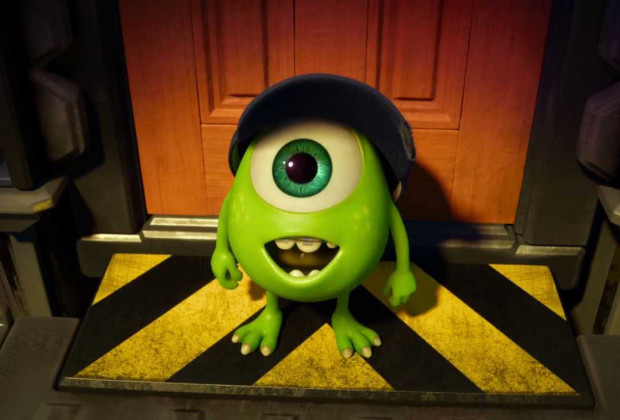

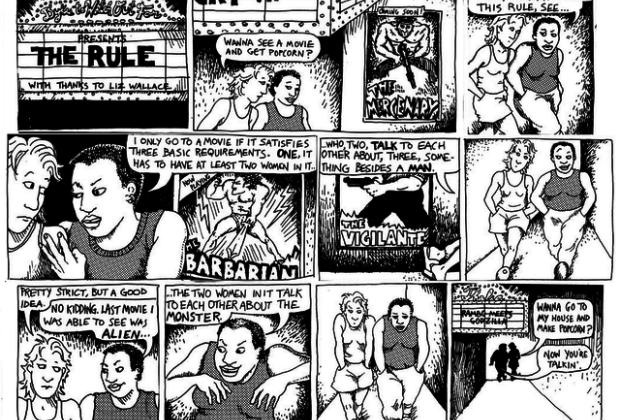
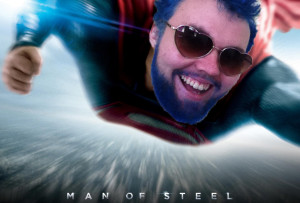


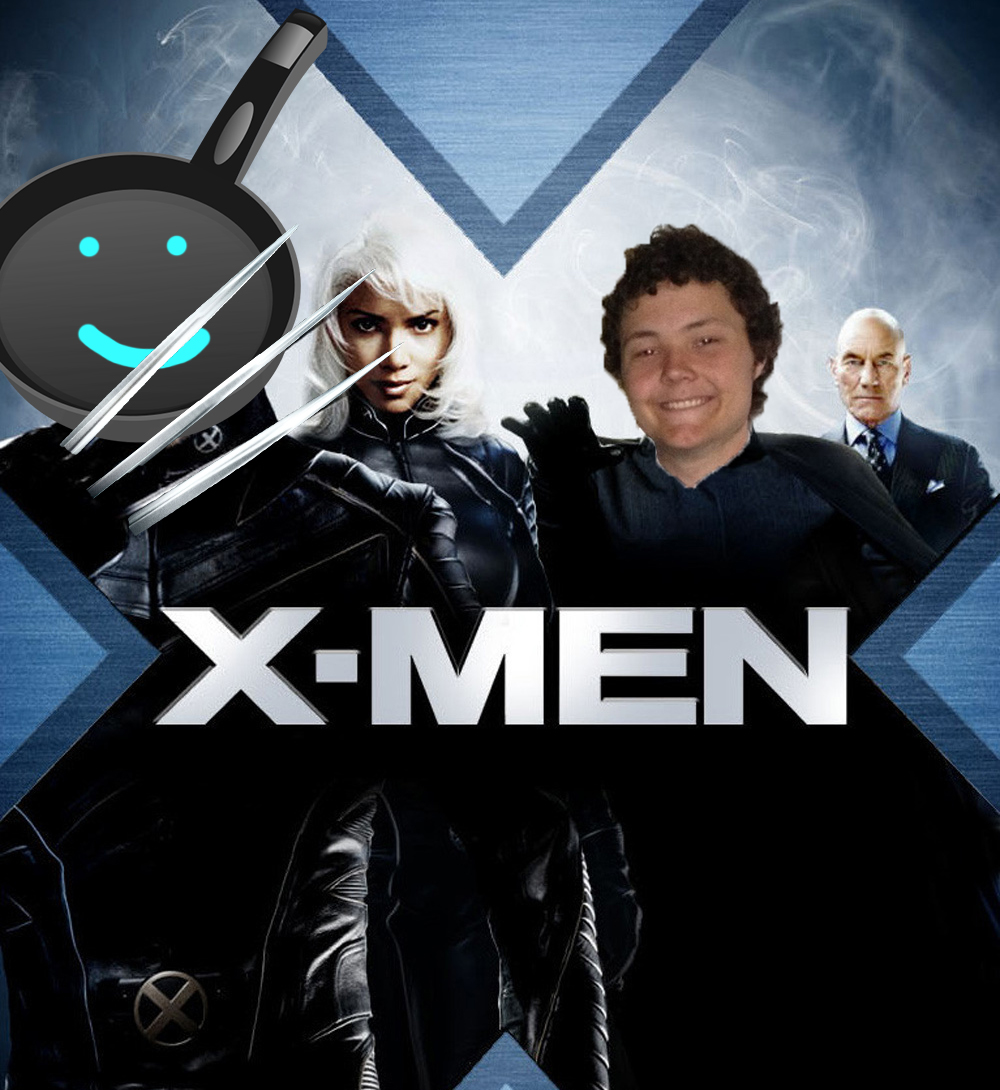
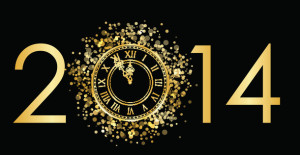
This website online is really a stroll-by for the entire information you wanted about this and didn抰 know who to ask. Glimpse here, and you抣l definitely discover it.
You need to participate in a contest for top-of-the-line blogs on the web. I will suggest this website!
I definitely wanted to write a simple word to say thanks to you for all of the nice tactics you are placing on this website. My particularly long internet research has at the end been paid with sensible ideas to go over with my family members. I ‘d assume that we website visitors are very much fortunate to exist in a fantastic site with many special individuals with insightful basics. I feel very much happy to have encountered the site and look forward to many more fun times reading here. Thanks a lot once more for all the details.
Howdy! I just want to give an enormous thumbs up for the great info you will have right here on this post. I can be coming again to your blog for extra soon.
You made some first rate factors there. I looked on the web for the difficulty and found most individuals will associate with along with your website.
This actually answered my drawback, thank you!
A powerful share, I simply given this onto a colleague who was doing a little evaluation on this. And he in actual fact bought me breakfast as a result of I found it for him.. smile. So let me reword that: Thnx for the deal with! But yeah Thnkx for spending the time to debate this, I really feel strongly about it and love studying more on this topic. If possible, as you become experience, would you mind updating your blog with extra particulars? It’s highly helpful for me. Large thumb up for this blog publish!
I抎 have to check with you here. Which isn’t something I normally do! I enjoy reading a publish that can make folks think. Also, thanks for allowing me to remark!
Aw, this was a really nice post. In idea I would like to put in writing like this moreover ?taking time and precise effort to make an excellent article?however what can I say?I procrastinate alot and in no way appear to get one thing done.
WONDERFUL Post.thanks for share..more wait .. ?
The subsequent time I learn a weblog, I hope that it doesnt disappoint me as a lot as this one. I mean, I do know it was my choice to read, but I actually thought youd have something attention-grabbing to say. All I hear is a bunch of whining about one thing that you could possibly fix should you werent too busy in search of attention.
very nice publish, i actually love this website, carry on it
This actually answered my drawback, thank you!
Aw, this was a very nice post. In concept I wish to put in writing like this additionally ?taking time and actual effort to make a very good article?but what can I say?I procrastinate alot and on no account seem to get one thing done.
An fascinating discussion is price comment. I believe that you need to write extra on this matter, it may not be a taboo topic however usually persons are not enough to talk on such topics. To the next. Cheers
Would you be interested in exchanging hyperlinks?
I used to be very happy to search out this web-site.I wanted to thanks for your time for this wonderful learn!! I definitely having fun with every little little bit of it and I’ve you bookmarked to take a look at new stuff you blog post.
An interesting discussion is worth comment. I believe that it is best to write extra on this subject, it might not be a taboo topic but generally individuals are not enough to speak on such topics. To the next. Cheers
Youre so cool! I dont suppose Ive learn something like this before. So nice to seek out somebody with some unique ideas on this subject. realy thank you for starting this up. this website is one thing that’s wanted on the net, somebody with just a little originality. helpful job for bringing one thing new to the web!
you have an excellent blog here! would you wish to make some invite posts on my weblog?
you have got an awesome weblog here! would you wish to make some invite posts on my blog?
It’s best to take part in a contest for probably the greatest blogs on the web. I’ll recommend this website!
Your house is valueble for me. Thanks!?
I抎 should examine with you here. Which isn’t one thing I often do! I enjoy studying a put up that can make folks think. Also, thanks for allowing me to remark!
I’m usually to running a blog and i actually respect your content. The article has really peaks my interest. I am going to bookmark your web site and hold checking for new information.
Can I simply say what a relief to search out someone who really is aware of what theyre speaking about on the internet. You definitely know the best way to convey a problem to light and make it important. Extra individuals must read this and perceive this aspect of the story. I cant believe youre not more fashionable because you positively have the gift.
That is the proper weblog for anybody who needs to seek out out about this topic. You notice a lot its nearly exhausting to argue with you (not that I actually would want匟aHa). You positively put a brand new spin on a topic thats been written about for years. Great stuff, simply great!
Youre so cool! I dont suppose Ive learn something like this before. So nice to find any person with some authentic thoughts on this subject. realy thank you for beginning this up. this website is something that is wanted on the web, somebody with just a little originality. helpful job for bringing something new to the internet!
An attention-grabbing discussion is value comment. I believe that you must write extra on this matter, it might not be a taboo topic but typically persons are not enough to talk on such topics. To the next. Cheers
I not to mention my guys have been examining the excellent helpful hints found on your site and so at once got an awful suspicion I had not expressed respect to the web site owner for those tips. All the women happened to be happy to read through all of them and have in effect certainly been enjoying these things. Thanks for getting considerably helpful and also for opting for such superb things millions of individuals are really eager to be aware of. My personal honest regret for not expressing gratitude to you sooner.
Good post. I learn something tougher on totally different blogs everyday. It’s going to always be stimulating to learn content material from other writers and apply just a little one thing from their store. I抎 want to make use of some with the content on my weblog whether you don抰 mind. Natually I抣l provide you with a hyperlink in your net blog. Thanks for sharing.
I was more than happy to search out this web-site.I wished to thanks to your time for this excellent read!! I positively having fun with each little little bit of it and I have you bookmarked to take a look at new stuff you weblog post.
There is noticeably a bundle to learn about this. I assume you made certain good factors in options also.
Spot on with this write-up, I really assume this website wants way more consideration. I抣l in all probability be once more to read rather more, thanks for that info.
After study a couple of of the blog posts on your website now, and I really like your way of blogging. I bookmarked it to my bookmark web site checklist and shall be checking again soon. Pls try my web site as effectively and let me know what you think.
I抎 should test with you here. Which isn’t one thing I usually do! I take pleasure in studying a publish that can make individuals think. Also, thanks for permitting me to comment!
very good put up, i actually love this web site, carry on it
My spouse and i ended up being so delighted Peter managed to finish off his inquiry by way of the ideas he was given when using the web site. It is now and again perplexing to just choose to be making a gift of secrets and techniques other people have been trying to sell. We acknowledge we’ve got the blog owner to give thanks to for this. The type of explanations you have made, the straightforward site navigation, the friendships you will help to foster – it is everything impressive, and it is assisting our son in addition to our family reason why this content is exciting, and that is extremely pressing. Thanks for the whole thing!
I discovered your weblog web site on google and examine just a few of your early posts. Continue to keep up the excellent operate. I simply extra up your RSS feed to my MSN Information Reader. Searching for forward to studying extra from you later on!?
It抯 laborious to seek out knowledgeable folks on this matter, however you sound like you already know what you抮e talking about! Thanks
There are actually plenty of particulars like that to take into consideration. That may be a nice point to deliver up. I supply the ideas above as normal inspiration but clearly there are questions like the one you bring up the place crucial factor will probably be working in honest good faith. I don?t know if finest practices have emerged around things like that, but I am certain that your job is clearly identified as a good game. Each boys and girls really feel the impression of just a moment抯 pleasure, for the rest of their lives.
Can I simply say what a aid to seek out somebody who truly knows what theyre speaking about on the internet. You undoubtedly know how one can deliver a difficulty to light and make it important. More individuals must learn this and perceive this facet of the story. I cant consider youre no more common because you definitely have the gift.
Good post. I learn one thing more challenging on totally different blogs everyday. It’s going to all the time be stimulating to learn content material from different writers and observe a bit something from their store. I抎 choose to make use of some with the content material on my weblog whether you don抰 mind. Natually I抣l give you a link on your net blog. Thanks for sharing.
The subsequent time I learn a blog, I hope that it doesnt disappoint me as much as this one. I imply, I know it was my choice to learn, but I actually thought youd have something fascinating to say. All I hear is a bunch of whining about one thing that you might fix if you werent too busy in search of attention.
It is best to participate in a contest for top-of-the-line blogs on the web. I will suggest this website!
WONDERFUL Post.thanks for share..more wait .. ?
I am usually to blogging and i actually respect your content. The article has really peaks my interest. I am going to bookmark your website and hold checking for brand new information.
I intended to write you that very small note just to give thanks yet again on the awesome concepts you’ve shown in this article. It is quite seriously generous of you in giving unreservedly what exactly most people might have sold for an e-book to end up making some cash on their own, most notably given that you could have tried it if you desired. These basics likewise acted like a easy way to recognize that other people online have the identical dream really like my personal own to find out significantly more with regard to this issue. I believe there are some more enjoyable periods ahead for individuals who see your website.
Whats up! I simply want to give a huge thumbs up for the great data you might have here on this post. I will be coming back to your weblog for more soon.
I抦 impressed, I must say. Actually rarely do I encounter a weblog that抯 both educative and entertaining, and let me inform you, you might have hit the nail on the head. Your idea is outstanding; the difficulty is something that not sufficient people are speaking intelligently about. I am very completely happy that I stumbled across this in my search for one thing referring to this.
You should take part in a contest for probably the greatest blogs on the web. I’ll recommend this site!
The subsequent time I read a blog, I hope that it doesnt disappoint me as a lot as this one. I imply, I know it was my option to read, however I truly thought youd have one thing interesting to say. All I hear is a bunch of whining about one thing that you could possibly fix if you happen to werent too busy searching for attention.
I抦 impressed, I have to say. Really hardly ever do I encounter a blog that抯 both educative and entertaining, and let me let you know, you’ve hit the nail on the head. Your idea is outstanding; the problem is one thing that not enough individuals are talking intelligently about. I am very blissful that I stumbled across this in my search for one thing regarding this.
There are certainly a number of particulars like that to take into consideration. That is a nice level to convey up. I offer the ideas above as normal inspiration but clearly there are questions like the one you carry up the place a very powerful thing can be working in honest good faith. I don?t know if best practices have emerged round things like that, however I’m sure that your job is clearly identified as a fair game. Each girls and boys really feel the impression of only a moment抯 pleasure, for the rest of their lives.
The next time I learn a blog, I hope that it doesnt disappoint me as much as this one. I mean, I know it was my option to learn, but I really thought youd have one thing attention-grabbing to say. All I hear is a bunch of whining about one thing that you would fix should you werent too busy looking for attention.
An attention-grabbing dialogue is value comment. I think that it is best to write more on this topic, it might not be a taboo topic but usually individuals are not enough to talk on such topics. To the next. Cheers
An interesting dialogue is value comment. I believe that you need to write extra on this matter, it won’t be a taboo subject but usually persons are not enough to speak on such topics. To the next. Cheers
You actually make it seem really easy along with your presentation but I in finding this topic to be really one thing that I believe I would never understand. It kind of feels too complicated and very huge for me. I’m taking a look forward on your next publish, I will try to get the cling of it!
I haven?¦t checked in here for a while as I thought it was getting boring, but the last few posts are great quality so I guess I?¦ll add you back to my daily bloglist. You deserve it my friend 🙂
Respect to article author, some good selective information.
We absolutely love your blog and find the majority of your post’s to be just what I’m looking for. Does one offer guest writers to write content in your case? I wouldn’t mind writing a post or elaborating on most of the subjects you write concerning here. Again, awesome website!
Have you ever considered writing an ebook or guest authoring on other websites? I have a blog based on the same topics you discuss and would love to have you share some stories/information. I know my viewers would value your work. If you are even remotely interested, feel free to send me an e-mail.
Im obliged for the blog article.Really thank you! Keep writing.
he blog was how do i say it… relevant, finally something that helped me. Thanks
Magnificent website. Plenty of useful info here. I am sending it to some friends ans also sharing in delicious. And obviously, thanks for your effort!
A masterpiece of writing! You’ve covered all bases with elegance.
Thank you for the hard work you put into this post. It’s much appreciated!
This post was a breath of fresh air. Thank you for your unique insights!
I appreciate the unique viewpoints you bring to your writing. Very insightful!
Your point of view caught my eye and was very interesting. Thanks. I have a question for you.
Your creativity and intelligence shine through this post. Amazing job!
Your blog is a go-to resource for me. Thanks for all the hard work!
Thank you for adding value to the conversation with your insights.
This article was a delightful enjoy reading. Your passion is clearly visible!
I admire the way you tackled this complex issue. Very enlightening!
Thank you for consistently producing such high-quality content.
Hey! Someone in my Myspace group shared this site with us so I came to check it out. I’m definitely loving the information. I’m book-marking and will be tweeting this to my followers! Wonderful blog and outstanding design and style.
Incredibly informative post! I learned a lot and look forward to more.
This blog is a treasure trove of knowledge. Thank you for your contributions!
This is a brilliant piece of writing. You’ve nailed it perfectly!
Great, thanks for sharing this blog article.Thanks Again.
What a compelling enjoy reading! Your arguments were well-presented and convincing.
I admire the way you tackled this complex issue. Very enlightening!
Your attention to detail is remarkable. I appreciate the thoroughness of your post.
Very good blog article.Thanks Again. Really Great.
Awesome blog article.Thanks Again. Awesome.
Really informative blog.
A big thank you for your article post.Much thanks again. Great.
I really liked your post.Thanks Again. Really Great.
Very informative blog article.Really looking forward to read more. Much obliged.
Your passion for this subject shines through your words. Inspiring!
Thanks for the post.Really thank you! Fantastic.
Muchos Gracias for your blog article.Really looking forward to read more. Awesome.
Really enjoyed this blog post. Great.
I loved your post.Much thanks again. Awesome.
I really liked your article. Want more.
Hey, thanks for the blog.Really thank you! Fantastic.
Say, you got a nice article.Much thanks again. Much obliged.
I’m so grateful for the information you’ve shared. It’s been incredibly enlightening!
Awesome blog article.Really thank you! Fantastic.
Your insights have added a lot of value to my understanding. Thanks for sharing.
Say, you got a nice post.Thanks Again. Really Great.
This is one awesome blog article.Really looking forward to read more. Really Cool.
Looking forward to reading more. Great blog. Really Cool.
I appreciate you sharing this blog article.Much thanks again. Really Great.
Wow, great post.Really looking forward to read more. Keep writing.
Say, you got a nice article post.Really thank you! Want more.
This is one awesome blog article.Really thank you! Much obliged.
I truly appreciate this blog.Really thank you! Great.
Really informative blog post.Really thank you! Cool.
Major thanks for the blog. Will read on…
Really enjoyed this blog.Much thanks again. Really Great.
Muchos Gracias for your blog article.Really thank you! Much obliged.
Im grateful for the blog post.Really thank you! Keep writing.
The grace and authority you handle topics with are as mesmerizing as a moonlit dance. I’m thoroughly impressed.
Thanks-a-mundo for the article.Thanks Again. Really Cool.
Wow, great blog post.Much thanks again. Great.
I truly appreciate this post.Much thanks again. Cool.
Thanks for the blog article.Much thanks again. Fantastic.
Thanks for the article.Really looking forward to read more. Awesome.
Awesome article post.Really looking forward to read more. Cool.
A big thank you for your article post.Thanks Again. Cool.
Major thankies for the blog post.Really thank you! Really Cool.
Really informative blog.Much thanks again. Fantastic.
Really enjoyed this post.Really looking forward to read more.
I value the blog article.Thanks Again. Cool.
I really liked your article.Really thank you! Will read on…
Really informative blog article.Really thank you! Really Cool.
I really liked your blog post.Really looking forward to read more. Want more.
You’ve articulated your points with such finesse. Truly a pleasure to enjoy reading.
Your work is truly inspirational. I appreciate the depth you bring to your topics.
Im grateful for the blog.Thanks Again. Fantastic.
Awesome blog post.Really looking forward to read more. Fantastic.
Your blog is a constant source of inspiration and knowledge. Thank you!
Major thankies for the article post. Really Cool.
I appreciate the unique viewpoints you bring to your writing. Very insightful!
Your thoughtful analysis has really made me think. Thanks for the great enjoy reading!
I always learn something new from your posts. Thank you for the education!
Enjoyed every bit of your blog article.Really looking forward to read more. Really Great.
You’ve presented a complex topic in a clear and engaging way. Bravo!
I’m amazed by the depth and b enjoy readingth of your knowledge. Thanks for sharing!
Thank you ever so for you article.Much thanks again. Will read on…
I think this is a real great blog.Much thanks again.
Thanks-a-mundo for the blog.Thanks Again. Much obliged.
Your ability to distill complex concepts into enjoy readingable content is admirable.
Your piece was both informative and thought-provoking. Thanks for the great work!
Very neat blog post. Keep writing.
Major thankies for the article post.Thanks Again. Really Cool.
I’m bookmarking this for future reference. Your advice is spot on!
Your passion for this subject shines through your words. Inspiring!
Very informative blog post.Thanks Again. Want more.
The grace and authority you handle topics with are as mesmerizing as a moonlit dance. I’m thoroughly impressed.
Im obliged for the blog article.Really thank you! Keep writing.
Thanks so much for the blog. Much obliged.
Thanks again for the article post. Really Cool.
You tackled a hard to understand issue with elegance and insight. I feel much more informed after reading The post.
I truly appreciate this article post.Really thank you! Will read on…
Thank you ever so for you article post.Really thank you!
The insights add so much value, like an unexpected compliment that brightens one’s day. Thanks for sharing.
A big thank you for your article post.Thanks Again. Fantastic.
A round of applause for your blog.Really looking forward to read more. Awesome.
Great blog.Really looking forward to read more. Really Cool.
Im grateful for the blog article.Really thank you!
Very good blog post.Really thank you!
Thanks so much for the blog article. Really Great.
Im grateful for the post. Keep writing.
Thanks so much for the article.Much thanks again. Want more.
Very good post.Really looking forward to read more. Keep writing.
Fantastic blog article.Really looking forward to read more. Really Cool.
Im grateful for the post. Cool.
Im thankful for the article post.Much thanks again. Really Great.
I really enjoy the blog article.Much thanks again. Really Great.
Looking forward to reading more. Great article.Really thank you! Keep writing.
Im obliged for the blog post.Much thanks again. Much obliged.
Enjoyed every bit of your post. Fantastic.
Thanks again for the blog article.Really thank you!
Your attention to detail is remarkable. I appreciate the thoroughness of your post.
I truly appreciate this blog article. Really Great.
I really enjoy the article.Really thank you!
Really enjoyed this post.Really thank you!
This piece was beautifully written and incredibly informative. Thank you for sharing!
Say, you got a nice blog post.Really looking forward to read more.
Thanks again for the blog. Will read on…
Im obliged for the article.Thanks Again. Keep writing.
A big thank you for your article post.Really thank you! Want more.
This is one awesome post.Much thanks again. Will read on…
Thank you ever so for you post.Really looking forward to read more. Awesome.
I appreciate the unique viewpoints you bring to your writing. Very insightful!
Thank you ever so for you blog article.Thanks Again. Awesome.
Major thanks for the post.Thanks Again. Really Great.
A big thank you for your post.Thanks Again. Fantastic.
I think this is a real great blog.Much thanks again. Really Great.
Great, thanks for sharing this article post.Really looking forward to read more. Want more.
I cannot thank you enough for the article.Much thanks again. Much obliged.
Thank you ever so for you article. Awesome.
I loved your blog post.Much thanks again. Really Cool.
Thanks a lot for the post.Really looking forward to read more. Cool.
Your piece was both informative and thought-provoking. Thanks for the great work!
Thanks a lot for the article.Thanks Again. Keep writing.
I truly appreciate this post. Awesome.
A big thank you for your post.Really thank you! Want more.
Really appreciate you sharing this article. Want more.
Wow, great article post.Really thank you! Cool.